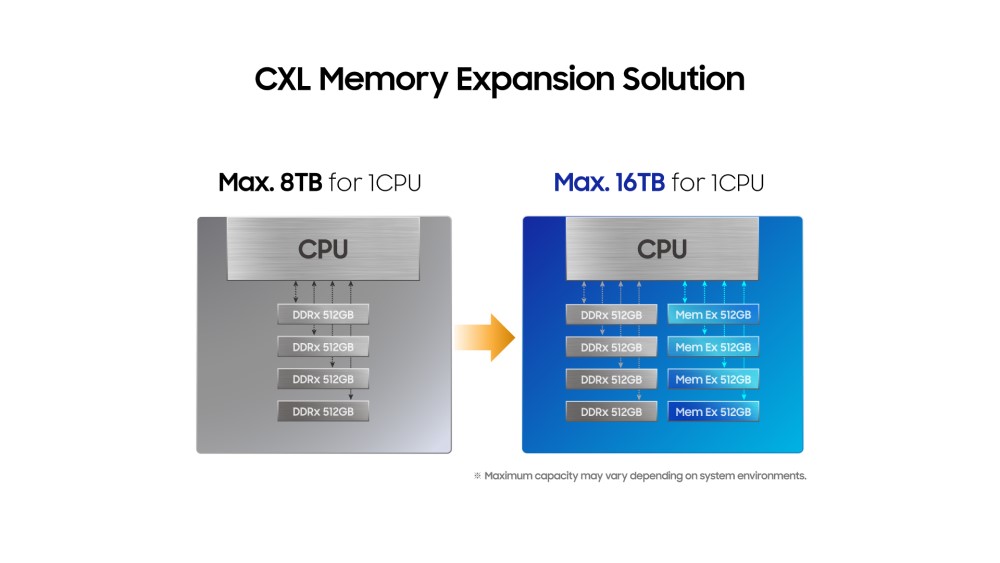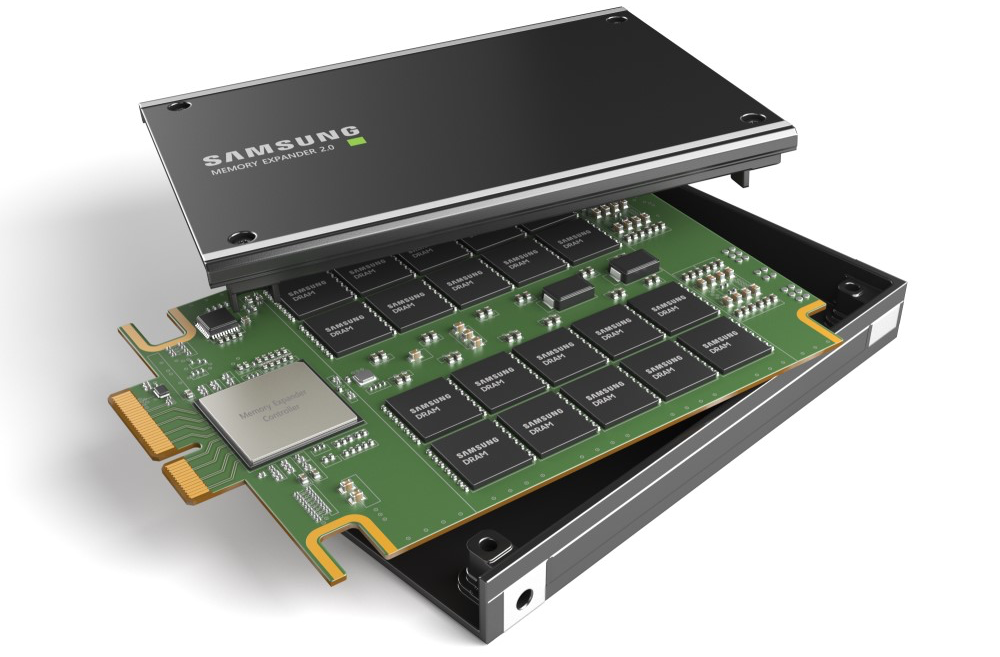Samsung Unveils 512GB CXL Memory Expander 2.0
Up to 16TB per CPU, price unknown
When Samsung formally introduced one of the industry's first Compute Express Link (CXL) memory expanders about a year ago, it largely positioned it as a proof-of-concept product mostly aimed at experimental machines that are not widely deployed. This week the company announced its CXL Memory Expander 2.0 that carries 512GB of DDR5 SDRAM and can add up to 16TB of memory to a CPU.
Samsung's Memory Expander 2.0 is based around the company's proprietary controller supporting the CXL.mem protocol as well as a PCIe 5.0 interface. By contrast, the company's original Memory Expander was based on a field-programmable gate array (FPGA) controller and carried 128GB of memory. Both Memory Expanders come in an EDSFF (E3.S) form factor and are designed for servers.

Samsung's Memory Expander 2.0 is aimed at next generation servers that support the CXL.mem protocol, such as those based on AMD's EPYC 7004-series 'Genoa' and Intel's Xeon Scalable 'Sapphire Rapids' CPUs. Since only select customers of Intel currently have access to Sapphire Rapids processors, demand for Samsung's Memory Expander 2.0 will hardly be significant. However, once Intel starts to deliver its Sapphire Rapids CPUs in high volumes for systems running AI, big data, and cloud applications, demand for CXL-supporting products should get considerably higher.
In addition to the Memory Expander 2.0, Samsung intends to reveal an updated version of its open-source Scalable Memory Development Kit (SMDK), a software package that allows the CXL memory expander to work effortlessly in heterogeneous memory systems.

Samsung intends to start sampling of its Memory Expander 2.0 in Q3 2022. Commercial shipments of the product are scheduled for a later date, when AMD's Genoa and Intel's Sapphire Rapids-based machines are available.
"CXL DRAM will become a critical turning point for future computing structures by substantially advancing artificial intelligence (AI) and big data services, as we aggressively expand its usage in next-generation memory architectures including software-defined memory (SDM)," said Cheolmin Park, Vice President of Memory Global Sales and Marketing at Samsung Electronics, and Director of the CXL Consortium. "Samsung will continue to collaborate across the industry to develop and standardize CXL memory solutions, while fostering an increasingly solid ecosystem."
Samsung hasn't revealed any pricing details as yet, but it's a safe bet these won't come cheap. Standard DDR5 memory starts at over $200 per 32GB DIMM, which would equal $3,200 per 512GB. Given the extra hardware and special nature of the Memory Expander 2.0, it will almost certainly cost more than that. How much more remains to be seen.
Stay On the Cutting Edge: Get the Tom's Hardware Newsletter
Get Tom's Hardware's best news and in-depth reviews, straight to your inbox.

Anton Shilov is a contributing writer at Tom’s Hardware. Over the past couple of decades, he has covered everything from CPUs and GPUs to supercomputers and from modern process technologies and latest fab tools to high-tech industry trends.